What is Greenwashing?
Companies often incorporate sustainability or eco-friendly language into their marketing to show consumers that their policies and products consider the impact their operations have on the environment. Some companies overemphasize the true amount they are doing to protect the environment; this is called greenwashing. The Cambridge Dictionary defines greenwashing as “behaviour or activities that make people believe that a company is doing more to protect the environment than it really is.”
 Greenwashing is a term that emerged in the 1980s and was popularized by environmentalist Jay Westervelt. He noticed signs in a hotel requesting guests reuse their towels to “help the environment”, however, he noticed no other efforts at the hotel to minimize its impact on the environment so he concluded the request to reuse towels was simply to save the hotel money.
Greenwashing is a term that emerged in the 1980s and was popularized by environmentalist Jay Westervelt. He noticed signs in a hotel requesting guests reuse their towels to “help the environment”, however, he noticed no other efforts at the hotel to minimize its impact on the environment so he concluded the request to reuse towels was simply to save the hotel money.
Generally, greenwashing means one of two things: either a company is trying to highlight a minor or ineffective environmental effort in order to cover up many other poor environmental decisions, or the company uses catchphrases like ‘eco-friendly’, ‘green’ or ‘all-natural’ purely as an advertising strategy, without accountability for what the word means.
In Canada, greenwashing is illegal under the Competition Act, which puts the onus on the company that is advertising to ensure the claims they are making are verifiable. The Government of Canada website shares that “before making environmental claims, businesses must make sure that the claims:
- Aren’t misleading or likely to result in misinterpretation;
- Are accurate and specific: claims that broadly imply that a product is environmentally beneficial or benign must be accompanied by a statement that provides support;
- Are substantiated and verifiable: claims must be tested and all tests must be scientifically sound, conducted in good faith and documented;
- Are relevant: claims must be specific to a particular product, and used only in an appropriate context. Claims must also take into consideration all relevant aspects of the product’s whole life cycle; and
- Don’t imply that the product is endorsed by a third-party organization when it isn’t.”
Greenwashing and Recycling
Recycling is often seen as one of the easiest ways to protect the environment. Producers include the chasing arrows symbol on their products to indicate which type of plastic it is, and consumers see this symbol as indicating that the material is accepted in their blue bin. It may be accepted in a blue bin somewhere, but what is accepted for recycling changes from region to region, or city to city. 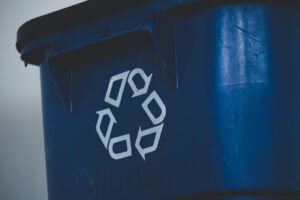
In the last few years many significant problems with the global recycling system have been revealed to the public eye. China stopped accepting loads of plastic from other countries, ships of mostly garbage labelled as recycling were rejected from countries in Asia and the Pacific Islands. Statistics circulated that only 10% of plastic produced has actually been recycled. In 2020, CBC aired a documentary called Plastic Wars, which explores whether the plastic industry used the cover of recycling to sell more plastic.
A summary of Plastic Wars shares that recycling came about in the 1980s when the plastic industry was trying to recover from environmental backlash and the threat of a ban on plastics.
The documentary noted: “They [plastic producers] looked at recycling as a way to improve the image of their product and started labeling plastics with the now ubiquitous chasing-arrows symbol with a number inside.”
Recycling started and continues as a way for plastic producers to keep manufacturing plastic. In addition, it keeps the onus of managing plastic waste on the consumer and lessens the public’s concern for plastic manufacturing’s environmental impact. Experts in the documentary share that recycling the majority of plastics (e.g. plastic film, plastic bags, and flexible plastic packaging) is not economically feasible.
Another tactic the plastic industry used to keep their products on the shelves, was a large investment in advertising extolling the benefits of plastic and increasing consumers’ emotional investment in recycling. The documentary concludes that the focus on recycling the last 40 years–instead of reduce and reuse–was not an accident, it was manufactured. 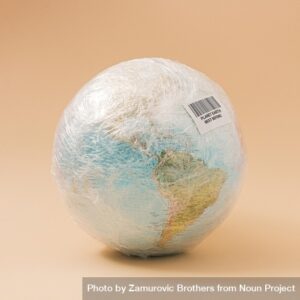
However, since there aren’t ways to recycle most plastic, recyclers couldn’t find end markets. Plastic waste began to pile up. As a result, in the 1990s, plastic recyclers began selling plastic to China, which would accept a mix of plastics in order to utilize the good material, but the remainder was discarded. The result was a plastic waste problem in China which led to China banning imported plastic waste in 2018. For now, plastic waste from North America is being sold to Southeast Asian countries, but the plastic waste problem is growing there as well.
Plastic Wars forecasts that plastic production worldwide will triple in the next 30 years. As the demand for fuel decreases, the oil and gas industry, which provides the virgin material for plastic, will have to focus on other markets for survival. As a result, the fight to reduce single use plastic won’t be an easy one to win.
How to take action?
1. Keurig Class Action
Koskie Minsky LLP is investigating a potential class action against manufacturers of single-use plastic coffee pods, who advertise these pods as being recyclable.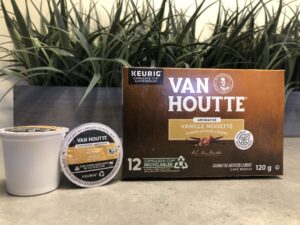
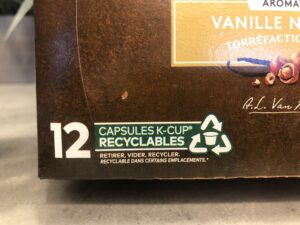 In reality, most Canadian jurisdictions do not even accept these pods in blue box recycling programs. Where they are accepted the foil cover needs to be removed and you have to clean out the grounds before putting the remaining cup in the recycling. The pods are effectively plastic garbage, contributing to the massive and growing global problem of plastic waste.
In reality, most Canadian jurisdictions do not even accept these pods in blue box recycling programs. Where they are accepted the foil cover needs to be removed and you have to clean out the grounds before putting the remaining cup in the recycling. The pods are effectively plastic garbage, contributing to the massive and growing global problem of plastic waste.
Koskie Minsky is currently investigating whether consumers of the coffee pods can claim damages resulting from the manufacturers’ misrepresentations. Fill out this form to find out if you qualify. Contact Koskie Minsky if you have questions or are interested in being involved, at 1-833-786-0009 (toll free) or coffeepods@kmlaw.ca.
2. Use your purchase power
Purchase from restaurants and stores that are making genuine efforts to reduce plastic waste and let them know you appreciate the effort. Share their efforts on your social media to encourage others to patronize these businesses as well.
3. Letter writing campaign
Organize a letter writing campaign to grocery stores to request less plastic packaging so that stores know their consumers are frustrated with the excess amount of plastic packaging. Check out this letter writing campaign Green Action Centre organized in 2019 for instructions and tips on organizing a campaign, as well as sample letters.

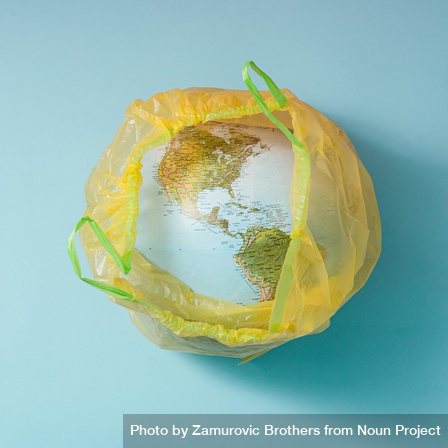


Is anyone going after the makers of black takeout containers? Shouldn’t they also be sued for greenwashing? The municipal recycling agencies usually trot out the extremely flimsy excuse that they can’t be recycled because the “smart” sensors can’t differentiate them from the conveyor belt, but when you point out some the ways that problem could be addressed, they get honest and admit the real problem is that there’s no market for them. Or is the catch that they’re not actually claiming to be recyclable; they’re just benefitting from the stroke of marketing brilliance that created the convention of putting the resin code inside a Mobius loop to fool everyone into thinking it means “recyclable” when it merely indicates the type of material?